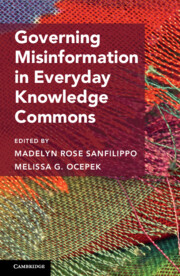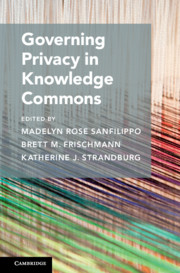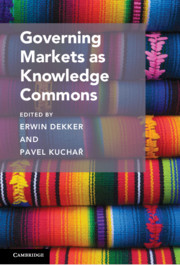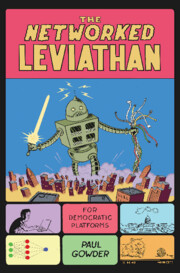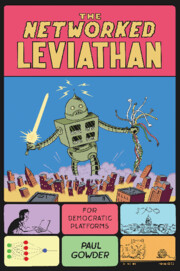Governing Misinformation in Everyday Knowledge Commons
Governing Misinformation in Everyday Knowledge Commons delves into the complex issue of misinformation in our daily lives. The book synthesizes three scholarly traditions - everyday life, misinformation, and governing knowledge commons - to present 10 case studies of online and offline communities tackling diverse dilemmas regarding truth and information quality. The book highlights how communities manage issues of credibility, trust, and information quality continuously, to mitigate the impact of misinformation when possible. It also explores how social norms and intentional governance evolve to distinguish between problematic disinformation and little white lies. Through a coproduction of governance and (mis-)information, the book raises a set of ethical, economic, political, social, and technological questions that require systematic study and careful deliberation. This title is also available as Open Access on Cambridge Core.
- Explores the practical implications of the Governing Knowledge Commons (GKC) framework in the context of misinformation in everyday life
- Illustrates governance with diverse case studies in which the Governing Knowledge Commons (GKC) framework is applied
- Available as Gold Open Access on Cambridge Core
Product details
March 2025Hardback
9781009255158
272 pages
229 × 152 mm
Not yet published - available from March 2025
Table of Contents
- 1. Introduction: governing everyday misinformation Melissa G. Ocepek and Madelyn R. Sanfilippo
- 2. Storytelling and/as Misinformation: storytelling dynamics and narrative structures for three cases of COVID-19 viral misinformation Kate McDowell
- 3. It's not (all) about the information: the role of cognition in creating and sustaining false beliefs Dominique Kelly and Jacquelyn Burkell
- 4. Information Hazing: An Examination through Computer Science Education Elizabeth Wickes and Melissa G. Ocepek
- 5. Common nonsense about password security and the expert-layperson knowledge gap Brett Frischmann and Alexandria Johnson
- 6. Hacks, Fakes, and Hot Takes: Moderating 'bad actors' on Google Maps Local Guides Platform Rebecca Noone and Aparajita Bhandari
- 7. The Human Infrastructures of Misinformation: A Case Study of Brazil's Heteromated Labor David Nemer and William Marks
- 8. Hidden Virality and the Everyday Burden of Correcting WhatsApp Mis- and Disinformation Britt Paris and Irene Pasquetto
- 9. Do Your Own Research: Everyday Misinformation and Conspiracy in Online Information Worlds Gary Burnett and Shannon Williams
- 10. How To Manage Issues on Twitter: Perspectives From Twitter Users Concerned About Mis/Dis-Information Sin, Sei-Ching Joanna and Kim, Kyung-Sun
- 11. Accepting and Expecting Deception: Community Governance of False, Fabricated, Omitted, and Out of Context Claims on Instagram Madelyn Rose Sanfilippo and Smita Katherine Nair
- 12. Co-constructing misinformation and community: some conclusions Madelyn Rose Sanfilippo and Melissa G. Ocepek.

